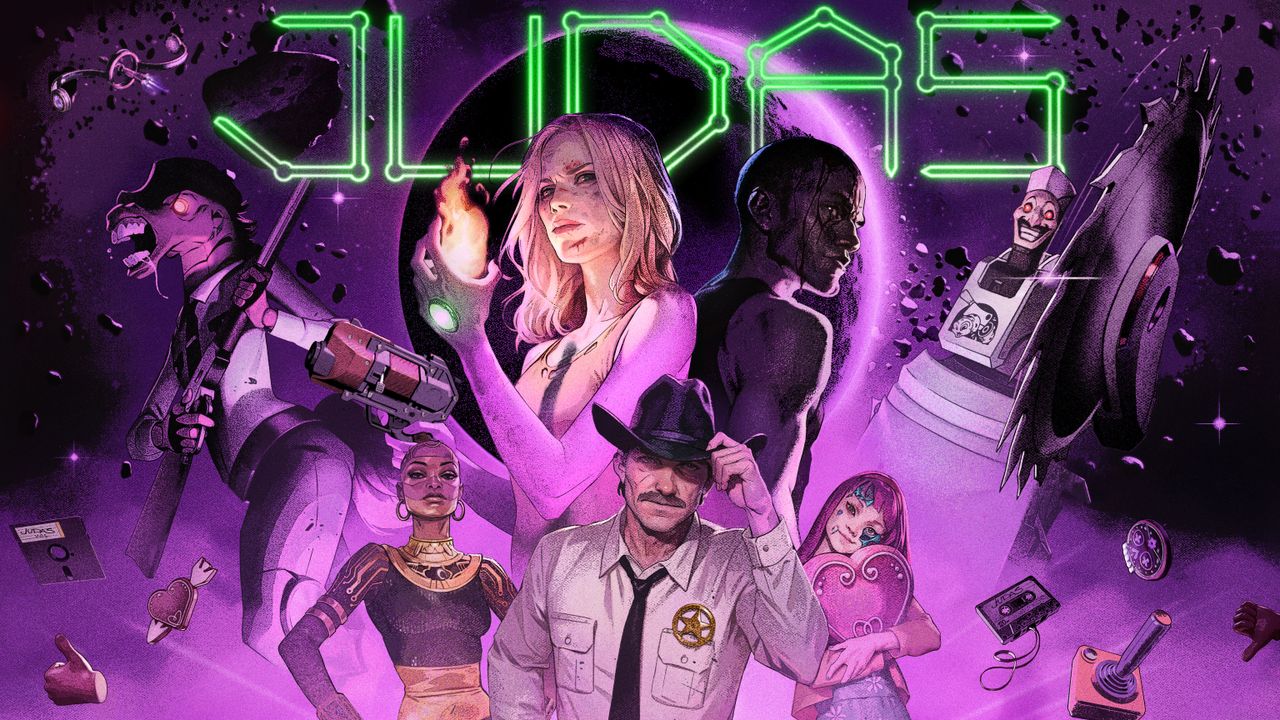
BioShock mastermind Ken Levine and his new studio Ghost Story Games are finally ready to talk about their upcoming game Judas once again, and this time Levine is literally talking about BioShock.
In a new post on the PlayStation Blog, Levine digs into the systems and nature of the distinctly BioShock-like first-person game. Villainy, and which character actually becomes the villain of your playthrough, are a focal point.
"When you play BioShock or BioShock Infinite, the villain is always going to be the villain," Levine reflects. "Fontaine, Comstock – they’re always going to be the bad guys. In Judas, your actions will attract members of the Big 3 to you as friends. But ignore one of them enough, and they become the villain. From there, they will get access to a new suite of powers to subvert your actions and goals."
If you, like me, started to think about Monolith's Nemesis System around this passage, join me in smug satisfaction: Levine says Ghost Story Games was heavily inspired by Monolith's reactive, procedural masterwork. (RIP, Monolith.)
"One of my personal favorites of all time is Middle Earth: Shadow of Mordor because of the emergent gameplay made possible by their Nemesis System," Levine says. "The system allows you to develop small relationships with multiple orcs. However, their goals were a little different than ours, because there are so many different orcs and they don’t have time to develop them into characters."
The unpredictable villains and characters of Judas propose more "intimate" relationships, Levine says. "We want losing one of them to feel like losing a friend," he stresses. "We want to play with that dynamic, and we want that choice to be super hard. The Big 3 are all going to be competing for your favor and attention. They can bribe you, save you in battle, talk shit about the other characters, and share with you their darkest secrets. But eventually, you’ve got to decide who you trust and who you don’t."

Returning to BioShock, Levine reckons BioShock Infinite saw you learn "everything" about companion character Elizabeth, "her abilities, her hopes and dreams." However, she "knew almost nothing about you, the gamer playing Booker."
This relationship changes in Judas, where the Big 3 are said to "observe you as you play, and they have feelings not only about how you approach combat, hacking, and crafting, but most importantly your interactions with the other two characters."
This character triangle is starting to rough out the "pseudo-procedural" approach to single-player narrative that Levine has been talking about for years. It's also really starting to perk up my ears.
Today's info dump is rounded out by the official key art for Judas (above). I'm assuming some of these characters are part of the Big 3, though I couldn't tell you who, and Levine won't tell you either.
"If you look closely, there’s probably some details you might be curious about. Let’s just say there’s some stuff in this game that we’re not going to talk about right now, but everything here is relevant."
And if you're wondering about the enraged bipedal horse brandishing a shotgun, well, that's just one of the Rent-a-Deputy sheriffs available in-game, seemingly as rentable combat buddies. Levine warns "be careful not to rent one when Tom is pissed off." Who is Tom? Not sure! Seemingly the man with the badge, hat, and mustache in the bottom-middle of the key art. I hope I don't make him the villain in my campaign, because I would like to rent a shotgun horse, please.







